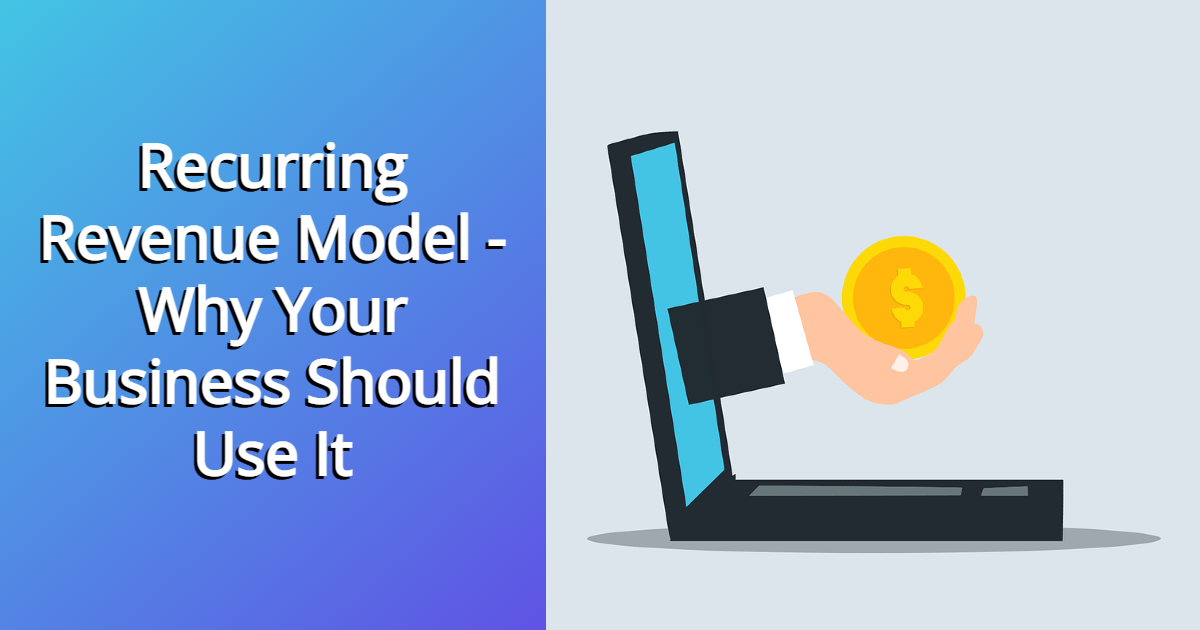As a business owner, not only is it beneficial to seek out multiple income streams, but offering products or services that can be renewed, also known as the recurring revenue model.
Monthly Recurring Revenue, often abbreviated as MRR, is a critical measure used by subscription-based businesses to calculate the total predictable revenue they can anticipate on a monthly basis.
MRR represents the most reliable income that a company can expect, not accounting for one-time or non-recurring revenues.
What Is the Recurring Revenue Model?
Recurring revenue model in simple terms is offering a product or service to customers that have a recurring fee.
A perfect example is subscription services like for membership sites or reseller web hosting. This type of revenue model is designed to help businesses to keep a constant flow of money in.
It is much better than say one-off sales because you only make money on time, instead of many times, until the customer cancels their plan. In fact, it’s becoming so popular that 63% of publishers are starting to offer readers a way to pay to access content, and in 2022, 41% of households are using subscription movie streaming services. In a way, it’s like selling your product many times over. Kind of cool, right?
6 Examples of Recurring Revenue Models
In recurring revenue, there are a few types:
1. Fixed service charge over a period of time
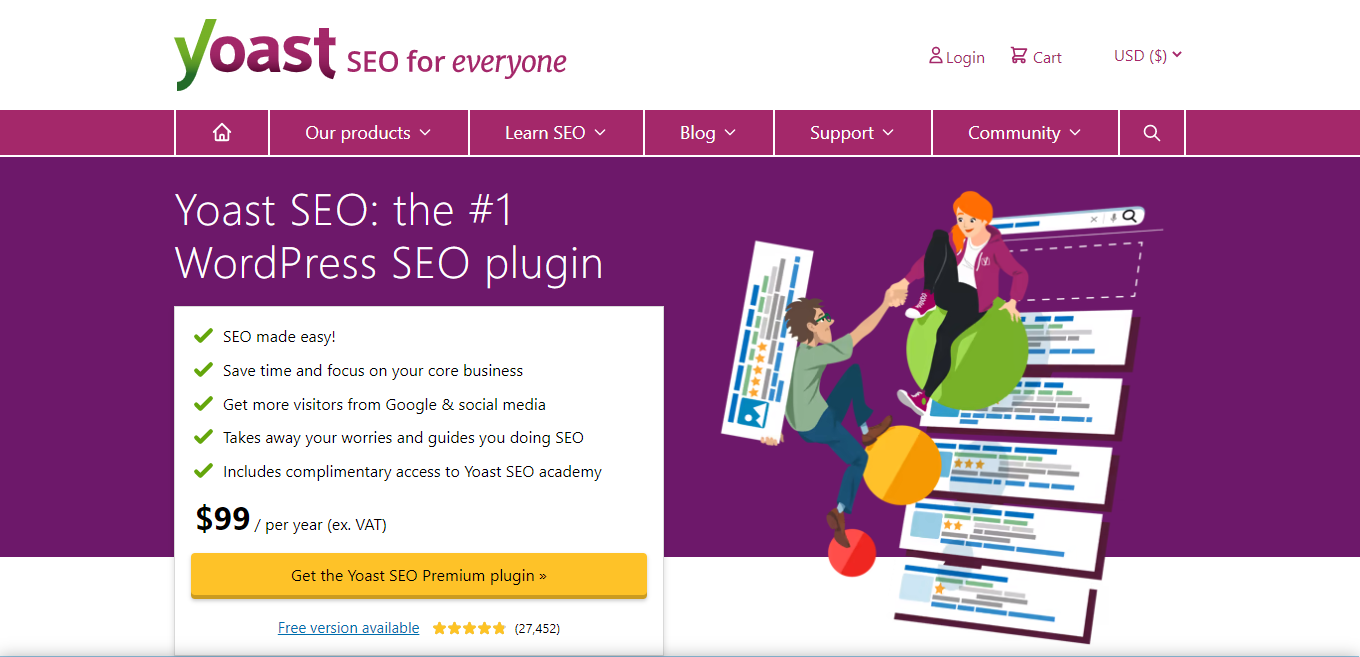
This is where you pay one free over a period of time. For example, if you sell a WordPress theme or plugin license, that will give you unlimited access over a year’s time. When the year is up, you can choose to cancel or renew.
Many theme and plugin developers in the WordPress community offer this type of recurring revenue model. Yoast SEO is just one of many examples of this type of recurring revenue model.
2. Sunk money consumables
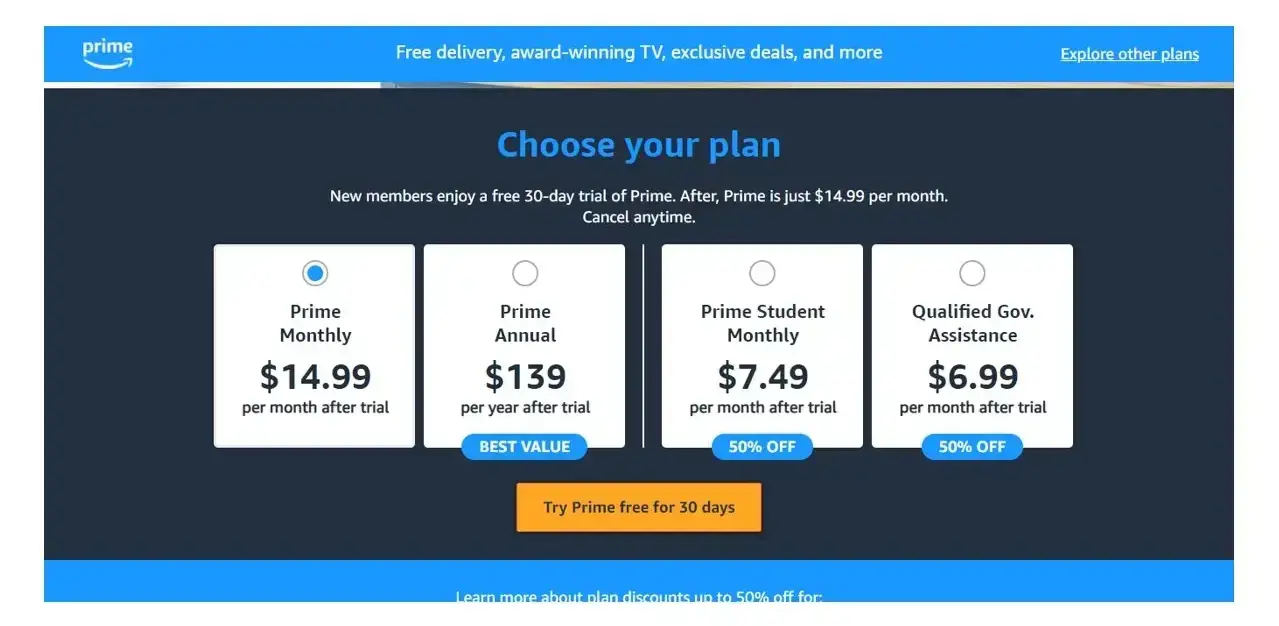
This is where you offer a product, and renew to keep using it. Services like Amazon Prime are perfect examples of sunk money consumables because you pay to access extra features on Amazon, from videos to free shipping, and all you do is pay a monthly subscription.
3. Automatic Subscription renewal
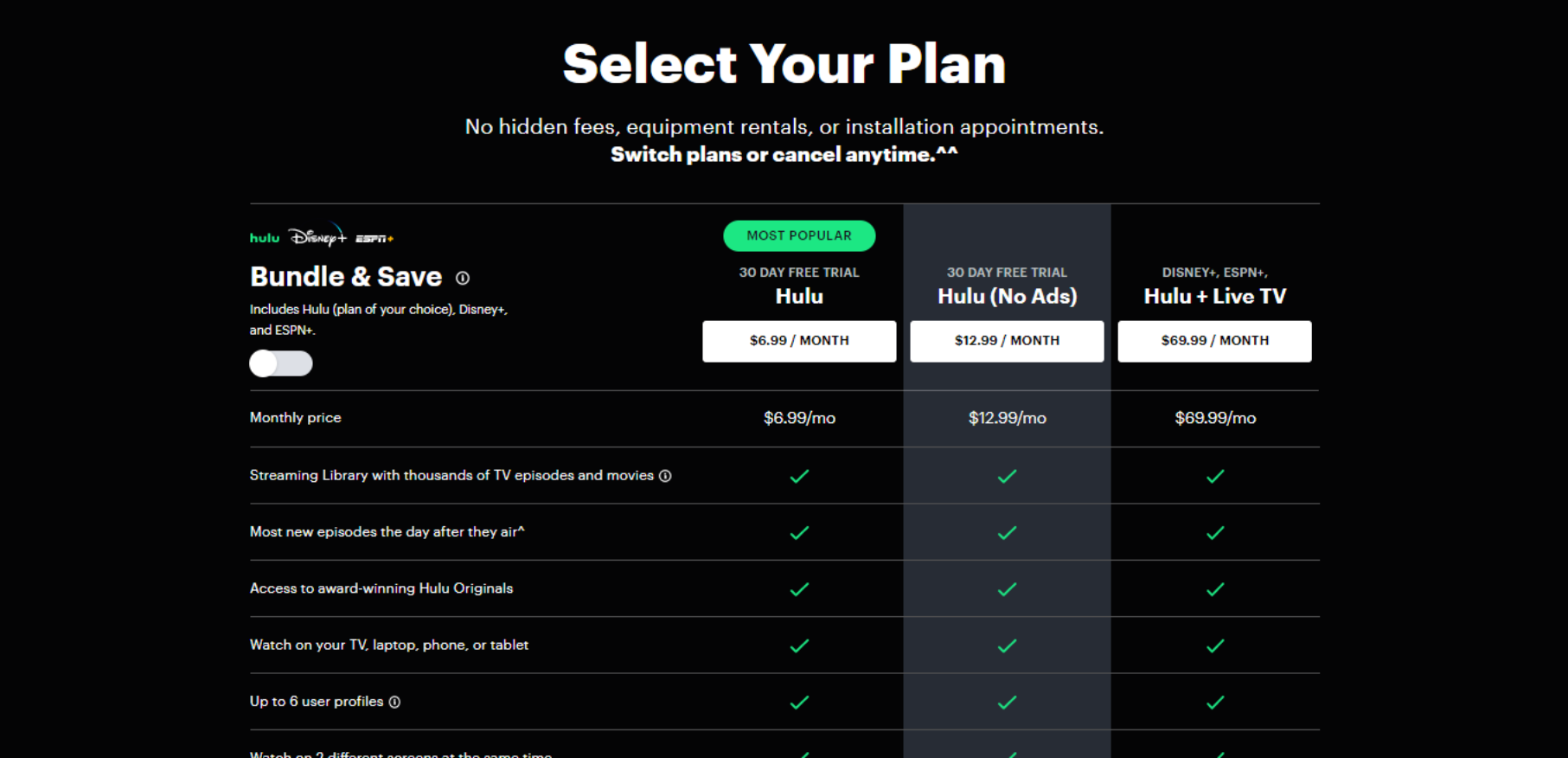
Automatic subscription renewal is pretty simple, as you purchase a subscription, and it will automatically renew the service until you cancel. Movie streaming services like Hulu and Netflix are great examples, as you can keep watching movies every month, until you cancel.
4. Billed per user
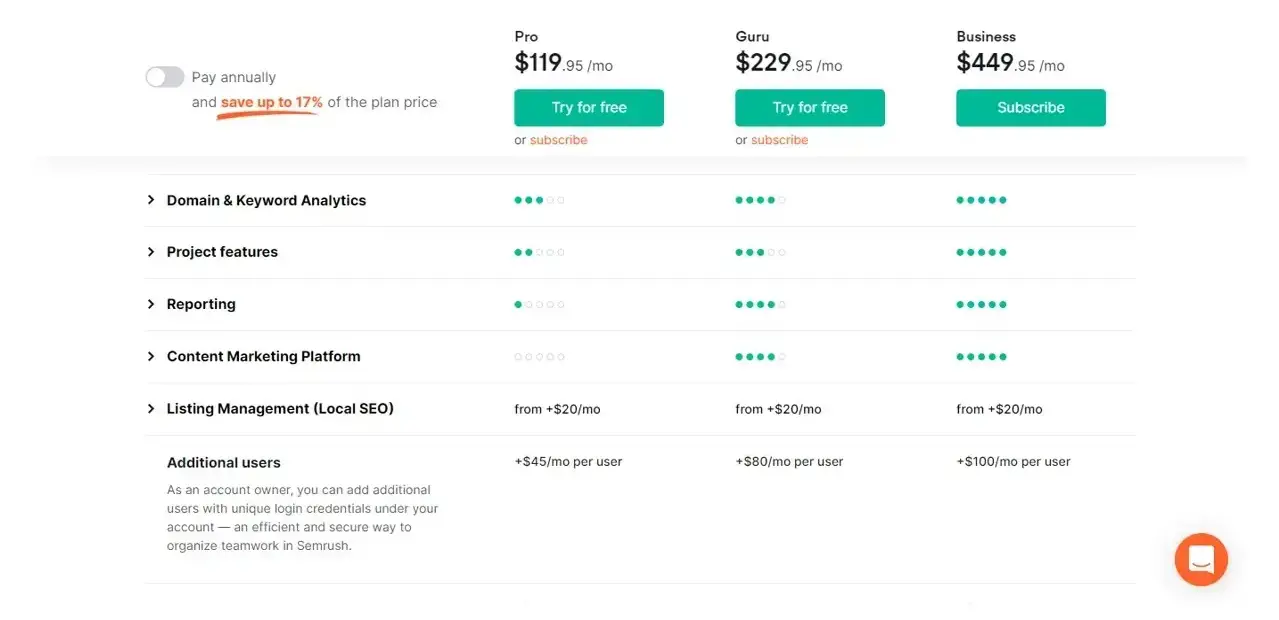
If you’re running an agency with several people on the team, and need to purchase a service for all of them to access the account, with their own individual login, you may need to buy a package based on how many users are needing access. SEMRush is a good example of a billed per user recurring revenue type.
5. Free lifetime access plan
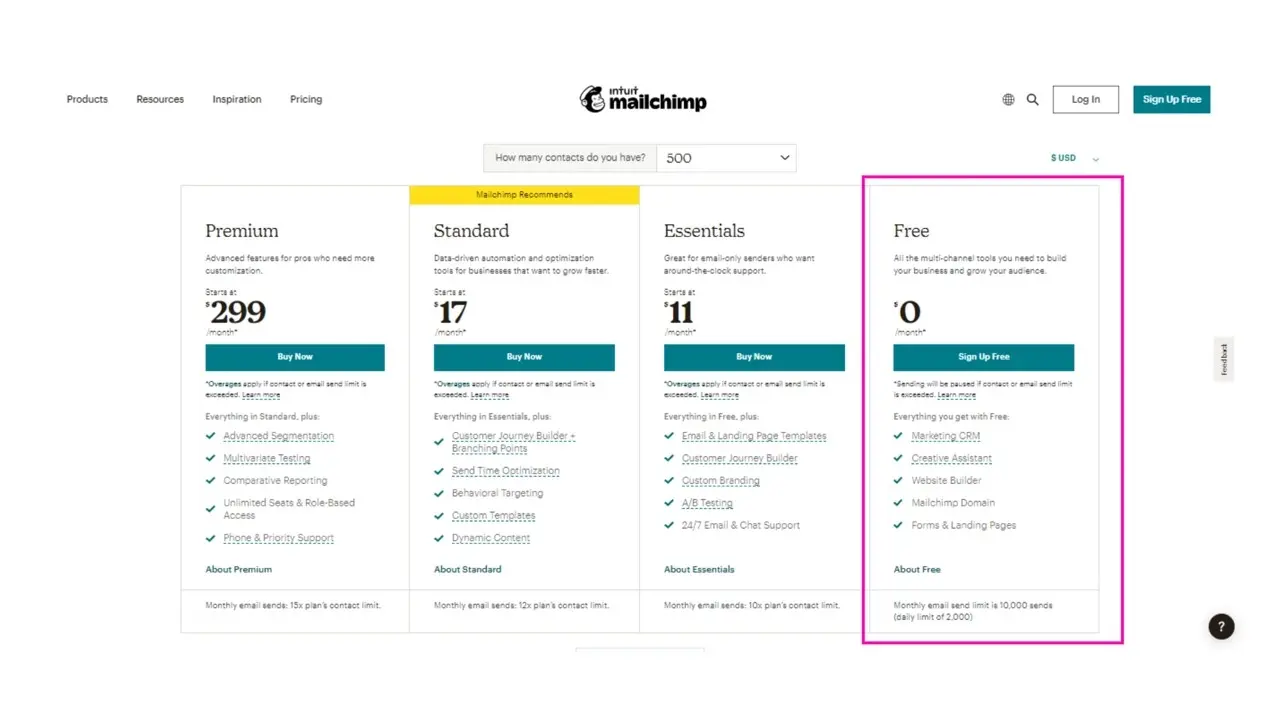
Lifetime Access plans can be a good way to get customers in the door. You offer a free product or service that has limited features, and no expiration on the subscription plan. If the user exceeds the plan’s allotted features, then the company offers package upgrades.
Mailchimp offers a free forever plan, so if you never exceed what that plan offers, then you don’t need to upgrade. However, if your email newsletter list is super successful and has been growing, you can opt to pay for an upgraded account.
6. Multiple tiered pricing
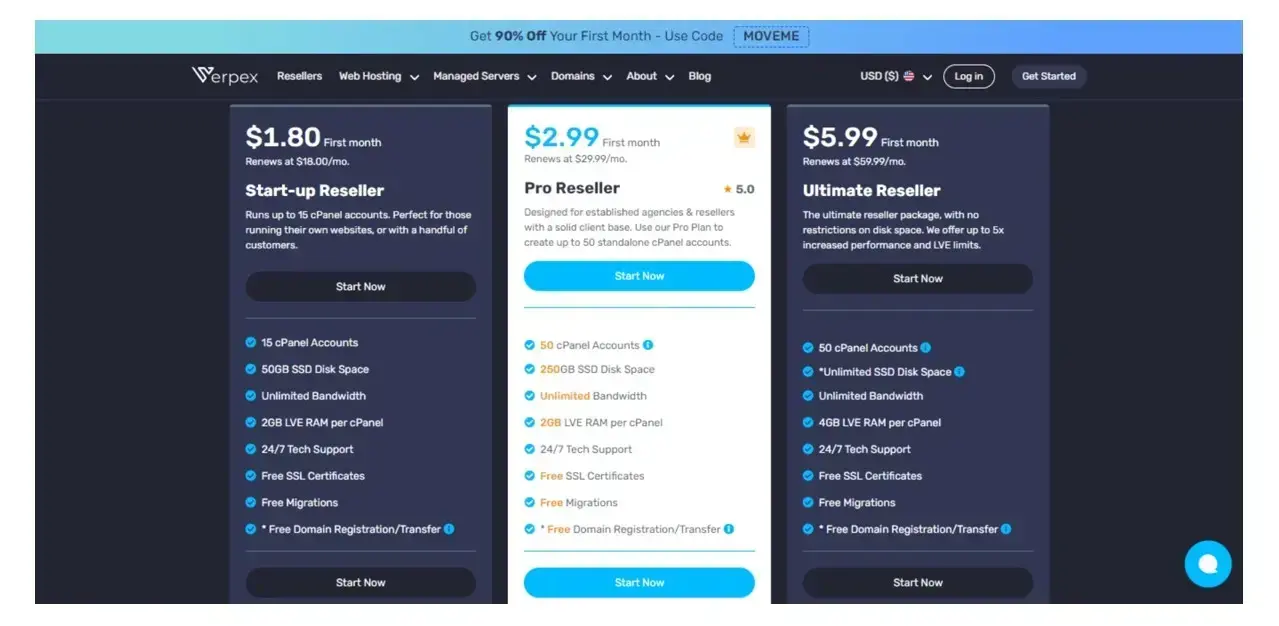
A multiple tiered pricing type of recurring revenue, is where you allot the customer so much access, and give other levels to upgrade for more access.
If you take a look at the Verpex Reseller hosting plans, you’ll sell a few packages to choose from. The first package allows customers to host 15 cPanel accounts, 50GBs of disk space, and all sorts of other hosting features. However, if you need more cPanel reseller accounts, you can pay more to get more access.
A few easy recurring revenue ideas for you to consider
Now that you’ve read about what types of recurring revenue types there are, here are some super easy ideas for you to consider. Each of these are really not too difficult to build.
Membership site
If you run an organization and would only like to offer access to those members for your services, you can certainly put together a subscription membership service. For example, if you offer private forums for your members, and access to limited to members merchandise, you can offer yearly subscription packages.
Product subscription service
Create a monthly product or care package of items to sell. Instead of selling them one time, you can offer it as a subscription, and ship out your merchandise each month, until your customer cancels the service.
Reseller web hosting
Reseller web hosting gives you the opportunity to sell a bit of web space to clients. You can choose how little or big of a web host package to sell, and give customers the choice to subscribe monthly or yearly.
Courseware
Like teaching? You can sell your full courses to people as a subscription service. You can sell as a one-off service or monthly renewal fee. Keep them as subscribers by gamifying the course, and giving completed lesson goers a certificate.
Sell licensed software
If you sell WordPress plugins or themes, or other online-based software, you can offer a yearly subscription. With a subscription, your users can get access to whatever you want to give them, including a year of technical support, or extra features. You can even sell plans to allow for your software to work on a specific number of sites or handle so many people.
Sell content
Got a blog or vlog? Got digital content like images or music or fantastic content that can’t be found anywhere else? You can sell access to these as a subscription service, much like Patreon. You can do this with your own website too!
In Summary
The recurring revenue model is a smart choice for any business owner. If you’re not using it, you should start using it.
There are so many ways to offer a recurring service that will bring you automatic cash flow, which will save you time and money in the long run, so you can spend time either creating more content or other businesses, or just enjoying your life.
Convinced? Well, time to get cracking on planning your recurring revenue service, and making some moolah!
Frequently Asked Questions
What is reseller hosting?
Reseller hosting is essentially a way for you to purchase hosting resources from us in bulk and then to re-sell those resources directly to your clients. You can set limitations on disk space, bandwidth, email usage, and other features on a per-package or per-site basis. We provide a completely managed service from a technical perspective - the server space, hosting resources and support come from us and you are responsible for supporting your end-user clients. You can even brand your clients' cPanels with your own logo for a super professional image.
But reseller hosting isn’t just for web designers, agencies and start-up hosting companies - it’s also a great option if you run a lot of websites personally. Because you have access to WHM, you can create each site with its own separate cPanel. This means each site or client gets their own login to manage their own hosting settings, isolating them completely from other users on the same server or under your account. This improves site performance and resiliency from malware attacks.
We have a lot more information on what is reseller hosting on our blog.
What’s included in a reseller package?
Reseller packages commonly include disk space, domain hosting, bandwidth, the latest cPanel control panel, premium support by the hosting providers, the ability to brand your own web hosting company, and so on.
Can you make money with reseller hosting?
You definitely can. There are countless success stories from entrepreneurs that have managed to take on hundreds, even thousands of clients, just be aware of the work you’ll need to put in.
Read our article to learn more about web hosting business income.
Are all reseller hosting plans cloud-based?
Our servers are in the cloud. So yes, all our reseller hosting plans are cloud-based
What are the benefits of reseller hosting?
With reseller hosting, you have the potential for more sales, you get access to a previously untapped market, and you get increased brand awareness.
How long does reseller hosting setup take?
Once you've ordered the desired reseller hosting plan, your package is created instantly and you'll receive a welcome email shortly after with your credentials to get started.
What is the key to success for reseller hosting?
The foundation of the success of your reseller hosting business will be finding a proper reseller web hosting provider that will provide you reliable and consistent support and service.
Can I expand my reseller plan as my business grows?
As your business grows, you need a hosting partner that offers the scalability you need to maintain uptime and your availability to new business.
The unlimited reseller plan, designed for the most comprehensive needs, comes with a maximum of 100 cPanel accounts, but should you need more than this over time, you can simply sign up for another unlimited membership to effectively double the number of accounts you can offer.
Whether or not you want this new account to be applied to the same server or an entirely different one is up to you.
Affiliate program vs reseller hosting: What is the difference? Which is better?
Both have advantages and disadvantages and one isn’t better than the other. Rather, each will be better in different circumstances.
Those looking to build a business should try reselling, while those wanting passive income should become affiliates.
You can learn more about the differences between reseller hosting and affiliate programs on our blog.
How do I promote my reseller hosting business?
Many find success with targeted Google and Facebook ads when promoting their reseller hosting website. Try and focus on a niche or local market to start off with.
What does white label hosting mean?
This means that your clients won’t know you’re a reseller. Your hosting platform will provide unnamed servers that you can rebrand to fit your business, and you’ll appear as the primary provider.
You can learn more about white label hosting on our blog.
Will my clients know I’m reselling?
No. If you use White label servers your customers will never be able to connect you to your host partner.
Am I responsible for my clients' content/behaviour on your servers?
Yes, you are responsible for what your reseller hosting clients upload on our servers.

Nile Flores is a long time professional blogger, as well as WordPress website designer and developer from the St. Louis Metro East. Nile blogs at NileFlores.com, where she’s passionate about helping website owners, whether they’re small business owners or bloggers. She teaches about Blogging, Social Media, Search Engine Optimization, Website Design, and WordPress. Additionally, Nile loves to speak at WordCamps (WordPress conferences) across the United States. When Nile isn’t knee-deep in coding, she’s a proud mom of a college student, and enjoys oil painting, cigar smoking, nail art design, and practicing traditional Okinawan kempo karate.
View all posts by Nile Flores















